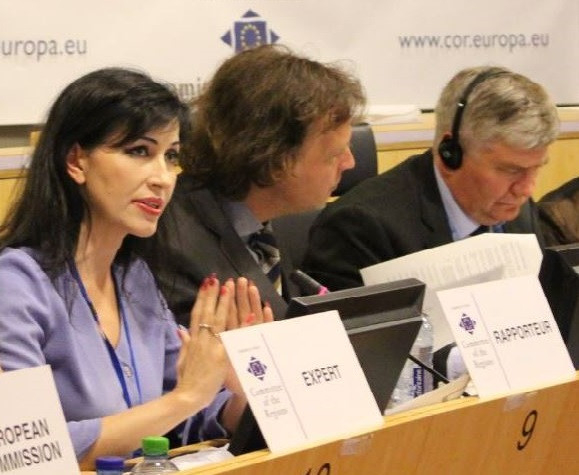Greater localism is needed in EU energy policy if we want to achieve improved efficiency

Local and regional leaders in the Environment Commission adopted on 30 June 2016 a draft opinion on 'an EU strategy on heating and cooling' prepared under the leadership of ECR Group Member Daiva Matonienė. In her opinion and in the article below, Ms Matonienė calls on the European Commission to review existing financial support mechanisms and to come up with more concrete and localist policy recommendations on how to develop the heating and cooling sector in Europe.
Heating and cooling in our buildings and industry accounts for half of the EU's energy consumption and if we want to increase our efficiency, it is an area we must target through a localism approach. Energy efficiency is a target that we can only reach if local and regional authorities are treated as partners.
I strongly believe the European Commission strategy published in February 2016 on heating and cooling is a step in the right direction, but it unfortunately fails to acknowledge the key role played by local and regional authorities. Local authorities are not only involved in the development and management of infrastructure, but are also among the largest energy users. Many towns and cities across the EU already have climate and sustainable energy action plans, which incorporate low-carbon heat and power production, deployment of renewable energy sources and measures aimed at energy efficiency improvement. At the EU level, we must facilitate the sharing of experiences and best practices.
Through my own experiences as a local, national and EU politician, I have seen first-hand that it is only through the different tiers of government working together that we can achieve our intended results. Our task at the EU and national level is to unleash the potential of the heating and cooling sector in terms of energy savings, sustainability and energy diversification, and those implementing most of the measures will be local or regional governments.
In my home country Lithuania I am directly responsible for the national programme of modernisation of multi-family apartment buildings, which aims to ensure that these buildings are more energy efficient. More than 1,000 buildings have been renovated under this scheme and a further 2,000 are undergoing renovation. We have achieved such great results in these areas because all levels of government – the European Investment Bank, the European Commission and the central government – have worked in close cooperation with local authorities to achieve a multiplier effect. Such a localism approach should also be the guiding principle for the European Commission's strategy.
Additionally, the European Commission has not focused enough in its strategy on innovation in the industry. At the EU level, we must collectively support the development of new technologies, which can efficiently contribute to climate change mitigation.
Furthermore, we must think about how these energy efficiency projects will be financed. Combining the European Structural and Investment Funds (ESIF) with the European Fund for Strategic Investments (EFSI) financial instruments would be really helpful as it would ensure the procedures are sped up and simplified.
Finally, we also need to remove the administrative and legal barriers that are slowing down the development of Combined Heat and Power (CHP) plants and networks.
Local and regional politicians are due to vote on the final text outlining their opinion during the CoR's 11-12 October plenary session. You can watch the plenary live through the CoR homepage.
Daiva Matonienė is a member of Šiauliai City Council in Lithuania and is also the Deputy Minister for Environment of Lithuania. She has been a member of the CoR since 2009 where she is the ECR Group ENVE Coordinator.

